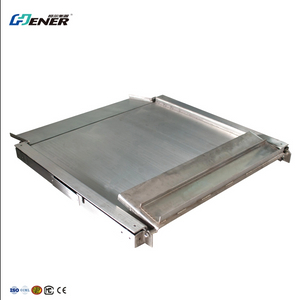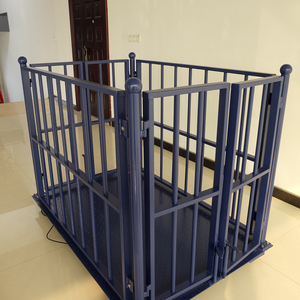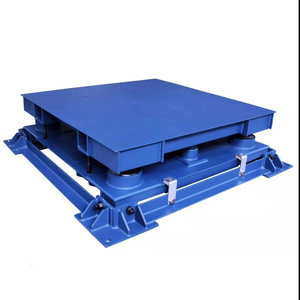
Weighing scales play a crucial role in the energy industry, ensuring precision, efficiency, and compliance across various segments, including oil and gas, renewable energy, and power generation. Accurate measurement is vital for optimizing operations, maintaining safety, and adhering to regulatory standards. This comprehensive exploration delves into the diverse applications of weighing scales in the energy sector, highlighting their significance in enhancing operational integrity and supporting sustainable practices.
Precision in Oil and Gas Exploration and Production
Drilling Operations
In the oil and gas industry, precise measurement of drilling fluids and cuttings is essential for maintaining the stability and efficiency of drilling operations. Weighing scales are used to measure the weight of drilling mud, which helps in monitoring and controlling the drilling process. Accurate weight measurements ensure that the correct density of drilling mud is maintained, preventing issues such as well blowouts or collapses.
Scales are also used to measure the weight of drill cuttings brought to the surface. This information is crucial for geological analysis and determining the composition of the subsurface materials. Accurate data from weighing scales supports decision-making processes in drilling operations, enhancing safety and efficiency.
Production and Transportation
During oil and gas production, weighing scales are used to measure the weight of produced hydrocarbons and by-products. This data is essential for inventory management, ensuring that the correct quantities of oil, gas, and other products are recorded and transported. Accurate weight measurements help optimize transportation logistics, reducing costs and minimizing environmental impact.
Weighing scales are also used in the transportation of oil and gas products. For instance, truck scales and weighbridges are employed to ensure that transport vehicles are loaded within legal weight limits. This prevents overloading, which can lead to accidents, increased fuel consumption, and infrastructure damage. Accurate weight measurements ensure compliance with transportation regulations and enhance safety in the logistics chain.
Enhancing Renewable Energy Operations
Biomass Energy
In the biomass energy sector, weighing scales are used to measure the weight of biomass materials, such as wood chips, agricultural residues, and organic waste. Accurate measurement of biomass inputs is crucial for maintaining the efficiency of biomass power plants and ensuring consistent energy production. Weighing scales help optimize the feedstock supply chain, reducing waste and improving operational efficiency.
For example, in a biomass power plant, scales are used to measure the weight of biomass delivered to the facility. This data helps in managing inventory, scheduling deliveries, and ensuring a continuous supply of feedstock for energy production. Accurate weight measurements also support the monitoring of feedstock quality, ensuring that the biomass meets the required specifications for efficient combustion and energy generation.
Solar and Wind Energy
In the solar and wind energy sectors, weighing scales are used in various applications, including the production and installation of equipment. For instance, scales are employed to measure the weight of solar panels and wind turbine components during manufacturing. Accurate weight measurements ensure that the components meet quality standards and are suitable for installation.
Weighing scales are also used during the installation of solar panels and wind turbines. For example, crane scales are used to measure the weight of components lifted by cranes, ensuring that the equipment operates within safe weight limits. This enhances safety and efficiency during the installation process, reducing the risk of accidents and equipment damage.
Supporting Power Generation and Distribution
Coal and Natural Gas Power Plants
In coal and natural gas power plants, weighing scales are essential for measuring the weight of fuel inputs and by-products. Accurate measurement of coal, natural gas, and other fuels is crucial for maintaining the efficiency and reliability of power generation. Weighing scales help optimize fuel consumption, reducing operational costs and minimizing environmental impact.
For instance, in a coal-fired power plant, belt scales are used to measure the weight of coal transported on conveyor belts. This data helps control the feed rate of coal into the boiler, ensuring efficient combustion and energy production. Accurate weight measurements also support the monitoring of emissions, helping power plants comply with environmental regulations.
Nuclear Power Plants
In nuclear power plants, weighing scales play a critical role in ensuring the safety and efficiency of operations. Scales are used to measure the weight of nuclear fuel assemblies, ensuring that the correct quantities of fuel are loaded into the reactor. Accurate weight measurements help maintain the balance and stability of the reactor core, preventing issues such as overheating or reactor instability.
Weighing scales are also used to measure the weight of spent nuclear fuel and other radioactive materials. This data is essential for managing the storage and disposal of nuclear waste, ensuring compliance with regulatory standards and minimizing environmental impact. Accurate weight measurements support the safe handling and transportation of radioactive materials, enhancing safety and security in the nuclear power industry.
Ensuring Compliance with Regulatory Standards
Environmental Regulations
Compliance with environmental regulations is a critical aspect of energy industry operations. Regulatory authorities impose strict standards on the handling, storage, and disposal of energy resources and by-products to protect the environment and public health. Weighing scales help energy companies comply with these regulations by providing accurate weight measurements of materials and emissions.
For example, in the oil and gas industry, scales are used to measure the weight of produced water and other waste materials. Accurate weight data helps ensure that these materials are handled and disposed of in accordance with environmental regulations. In power plants, scales are used to measure the weight of emissions and by-products, ensuring compliance with air quality standards and waste management requirements.
Safety Regulations
Ensuring the safety of workers and equipment is a top priority in the energy industry. Weighing scales help energy companies comply with safety regulations by providing accurate weight measurements of materials and equipment. This data helps prevent overloading, reducing the risk of accidents and equipment damage.
For instance, in the transportation of hazardous materials, accurate weight measurements are essential for ensuring that transport vehicles operate within safe weight limits. This helps prevent spills, leaks, and other incidents that could pose risks to workers and the environment. By providing accurate weight data, weighing scales support the safe handling and transportation of hazardous materials, enhancing safety and compliance in the energy industry.
Optimizing Cost Management and Efficiency
Fuel Cost Management
Accurate measurement of fuel inputs is essential for optimizing cost management in the energy industry. Weighing scales help energy companies monitor and control fuel consumption, reducing operational costs and improving efficiency. This is particularly important in power generation, where fuel costs represent a significant portion of operational expenses.
For example, in a natural gas power plant, scales are used to measure the weight of natural gas delivered to the facility. This data helps optimize fuel purchasing and inventory management, ensuring a continuous supply of fuel for energy production. Accurate weight measurements also support the monitoring of fuel efficiency, helping power plants identify opportunities for cost savings and performance improvement.
Budgeting and Forecasting
Weighing scales provide valuable data that supports budgeting and forecasting in the energy industry. Accurate weight measurements help energy companies track material usage, fuel consumption, and production rates, providing insights that inform financial planning and decision-making.
This data supports better resource allocation, helping companies allocate funds more effectively and plan for future growth. By providing real-time data on weight and material flows, weighing scales help energy companies identify cost-saving opportunities and optimize their operations.
Enhancing Research and Development
Energy Research
Weighing scales are essential tools in the research and development (R&D) of new energy technologies. During the R&D process, accurate measurement of raw materials and experimental samples is critical for formulating and testing new energy solutions. Weighing scales support various R&D activities, including material characterization, process optimization, and performance testing.
In material characterization, weighing scales are used to measure precise quantities of materials for analysis. This accuracy is essential for evaluating the properties and performance of new energy materials, such as advanced batteries, solar cells, and fuel cells. In process optimization, scales are used to measure inputs and outputs accurately, ensuring the reliability and reproducibility of experimental results.
Pilot Plant Operations
In pilot plant operations, weighing scales play a vital role in scaling up energy processes from the laboratory to production levels. Accurate measurement of raw materials and intermediates is essential for optimizing the pilot plant process and ensuring that it can be scaled up successfully. Weighing scales provide precise data that supports process optimization and helps identify potential issues before full-scale production.
By providing accurate weight measurements, weighing scales help ensure that pilot plant operations are conducted efficiently and safely. This precision is essential for developing scalable and sustainable energy processes that meet quality and regulatory standards.
English
العربية
Français
Русский
Español
Português
Deutsch
italiano
Nederlands
Tiếng Việt
ไทย
Polski
Türkçe
ភាសាខ្មែរ
Bahasa Melayu
Filipino
Bahasa Indonesia
Română
Čeština
Монгол
қазақ
Српски
हिन्दी
Slovenčina
Slovenščina
Norsk
Svenska
Ελληνικά
Suomi
Հայերեն
Latine
Dansk
Shqip
Hrvatski
Afrikaans
Gaeilge
Eesti keel
Oʻzbekcha
latviešu
Azərbaycan dili
Беларуская мова
Български
ქართული
guarani
Кыргызча
Lietuvių
Македонски
Malti
Soomaali
Тоҷикӣ
Türkmençe
















